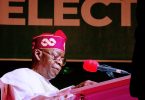The Chairman, Senate Committee on Industries, Dr. Sam Egwu has charged the management of the Industrial Training Fund (ITF) to verify and disqualify all non-technical undergraduate candidates from the Students Industrial Work Experience Scheme (SIWES) for better performances and transparency.
Speaking at the Stakeholders Meeting on Expanded Students Industrial Work Experience Scheme (SIWES), in Abuja, Egwu felt it is one of the ways to reduce its overhead cost, as a lot the students who enrolled into the SIWES over the years have no business coming into the scheme.
“If this is done, the approved budget of N1.2 billion will be relatively sufficient to run the scheme in 2017,” he argued. Director-General of ITF, Sir Joseph Ari identified insufficient funding and increased enrollment as two key challenges confronting the agency.
He spoke against the backdrop of the challenges the Director- General , ITF, Joseph Ari , said the body was facing implementing a seamless SIWES which had adversely affected the intention , which the scheme was meant to achieve.
Ari listed some of the challenges affecting the smooth implementation of the scheme as poor funding and astronomical increase in students ’ enrolment as a result of continued increase in the number of tertiary educational institutions.
Others are increase in the number of approved courses, limited placement opportunities in industries , late submission of placement lists by supervisory agencies, and misconceptions about SIWES allowance .
Meanwhile, the Minister of Industry, Trade and Investment , Dr . Okechukwu Enelamah, said while the expectations of government for the programme had not been fully realised due to myriads of challenges, steps were being taken to find lasting solutions to the problems affecting the programme .
The minister stated, “Although expectations of government have not been fully realised due to myriads of challenges , the ITF has so far midwifed the programme effectively on behalf of the Federal Government.
“Given the Federal Government ’ s posture to bring about economic recovery and growth, the upgrading of our educational curriculum through an articulated process of developing our young men and women in their fields of endeavour cannot be overemphasized.”







